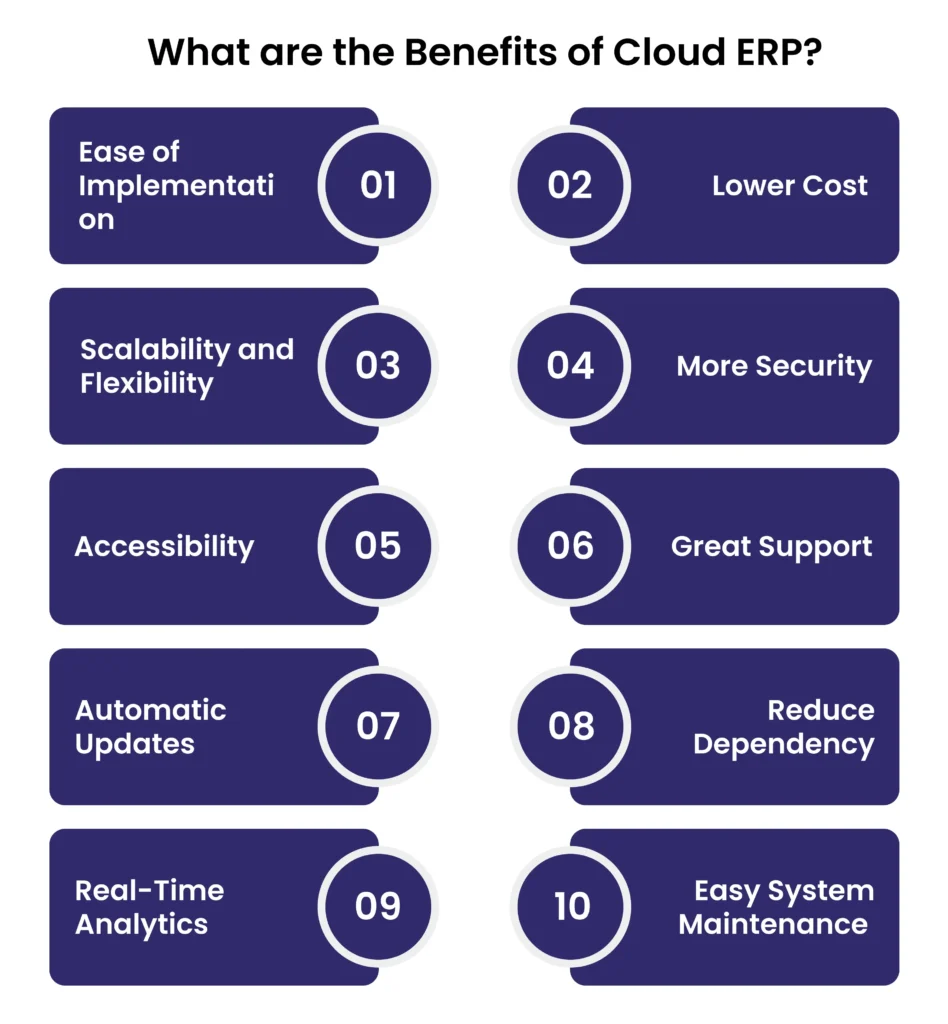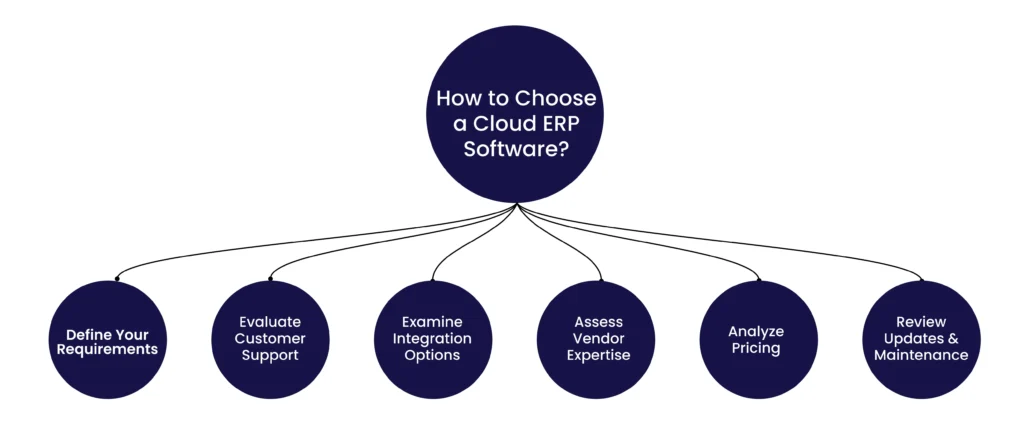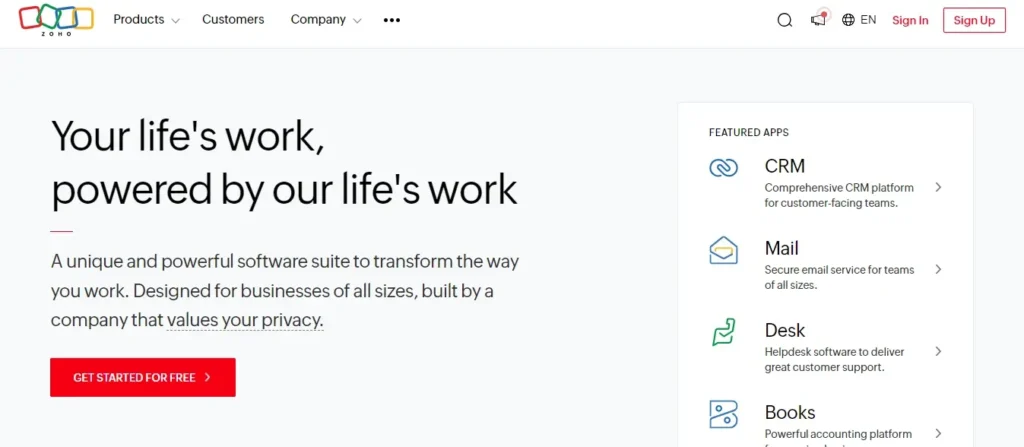
Are you considering implementing a cloud-based ERP (Enterprise Resource Planning) system for your business but unsure of its benefits? You’re in the right place. Here, you’ll find all the information to help you make an informed decision.
Implementing the cloud-based ERP helps businesses run smarter and compete in the fast-paced digital age. Companies of all sizes adopt ERP systems to enhance operations and address various challenges.
For 95% of organizations, implementing ERP resulted in improvements to business processes.
According to Statista, the global cloud ERP software market will reach 40.5 billion U.S. dollars by 2025.
So, let’s dive deeper into the benefits of cloud based ERP, so you can confidently integrate it into your business.
What are the Benefits of Cloud ERP?
Cloud ERP systems offer many benefits to small and medium-sized businesses. So, look at them and understand what benefits businesses get from implementing the cloud-based ERP.

1. Ease of Implementation
Cloud ERP systems offer a much faster implementation compared to on-premise solutions, with the technical environment being configurable in as little as 24 hours. This rapid deployment is possible because your SaaS provider handles all hardware and software installations, along with dedicated data center management.
Similar to customer mobile apps, cloud ERP applications are easy to configure and feature intuitive user interfaces, which boost productivity. This allows businesses to quickly seize new opportunities and stay agile in today’s competitive landscape.
2. Lower Cost
40% of businesses achieve IT savings after an ERP deployment. Cloud-based ERP systems have low implementation costs. It eliminates the heavy upfront investments. With a subscription service, there’s no upfront purchase cost for hardware or ERP software. This makes it a better option for small and medium-sized businesses.
According to Fortune Business Insights, the global cloud ERP market size will reach USD 181.04 billion by 2032.
Moreover, ERP systems help to reduce administrative and operational costs. By automating essential business processes, companies can minimize the labor needed for manual tasks, which helps to reduce overall operational expenses.
3. Scalability and Flexibility
One of the key advantages of Cloud ERP is its scalability. Due to scalability, cloud-based ERP systems are perfect for growing businesses. By choosing a cloud ERP system, businesses can easily scale up or down based on their specific needs. As a company grows or experiences fluctuations in demand, it can adjust its ERP resources accordingly.
Additionally, Cloud ERP provides adaptable solutions, enabling organizations to add or remove functionalities as required. This flexibility ensures that the ERP system can adapt alongside the business, accommodating changes without the need for significant investments in new infrastructure.
Launch Your SaaS Product with NinjasCode
4. More Security
A cloud ERP system is a safer and more secure place for saving data. Cloud-based ERP systems are designed to identify and immediately address security threats. These systems also offer a robust backup and recovery plan. Cloud-based ERP systems have built-in security measures that offer more protection and reduce the responsibility load of the IT department.
In addition, a system based in the cloud can be more secure than if you host your data in-house. The host of ERP cloud vendors provides a more secure environment, protecting data in case of lost or stolen devices.
5. Accessibility
Accessibility is one of the great benefits of a cloud based ERP system. With remote access capabilities, users can connect to the system from anywhere with an internet connection, which greatly facilitates remote work and collaboration among team members.
Additionally, many cloud ERP solutions provide mobile compatibility through dedicated apps, enabling users to manage operations on the go. This flexibility ensures that businesses can maintain productivity and responsiveness, regardless of location.
6. Great Support
Cloud-based ERP providers typically offer round-the-clock support. This ensures that any issues can be addressed promptly, minimizing downtime and maintaining business continuity.
With dedicated support teams, cloud ERP solutions can quickly identify and resolve issues, helping businesses stay operational without significant interruptions.
7. Automatic Updates
Cloud providers regularly update their software, ensuring that users have access to the latest features, improvements, and security patches. This keeps the system running smoothly and efficiently.
8. Reduce Dependency
Cloud-based ERP systems reduce dependency for organizations. Moving to a cloud-based ERP can significantly affect the company’s IT team. Cloud ERPs are easier to handle. With the software vendor taking on more technical tasks, your IT team will have fewer daily maintenance responsibilities, such as:
- Product support
- Hardware upkeep
- Updates and upgrades
Moreover, you will have more time to focus on tasks that have a higher value and on business outcomes. Making the most of your internal IT team is especially beneficial for small and medium-sized organizations. Likewise, companies without a fully functional IT department can continue to run efficiently without having to make additional investments.
9. Real-Time Analytics
With cloud ERP, data management and analytics have become more accessible. Cloud ERP systems often come with real-time analytics capabilities, enabling businesses to make informed decisions based on up-to-date data. They can track sales figures, customer trends, inventory levels, and identify the areas of improvement.
10. Easy System Maintenance
Cloud ERP solution allows businesses to offload the burden of hardware management, software updates, and system backups to the service provider. This means that organizations can benefit from automatic updates and enhanced security protocols without disrupting their daily operations.
Furthermore, cloud ERP systems are typically designed to be user-friendly, making it easier for employees to use the software effectively. This streamlined approach not only reduces the need for extensive IT resources but also allows companies to focus more on their core business activities.
How to Choose a Cloud ERP Software?
Choosing a Cloud ERP software involves several key considerations. Here are some tips to help you make an informed decision.

Define Your Requirements
First, you need to identify your specific needs. Consider what functionalities are essential for your business, such as inventory management, financial tracking, or customer relationship management (CRM). Additionally, think about the scalability requirements of your business to ensure that the software can grow alongside your needs.
Evaluate Customer Support
It is essential to evaluate the level of customer support offered by the vendor. Check the availability of support channels, such as email, chat, or phone, and ensure that assistance is readily accessible when you need it. Look for reviews or case studies that highlight the quality of their support service.
Examine Integration Options
Integration capabilities are important for a seamless workflow. Ensure that the cloud ERP software can integrate easily with your existing systems, such as CRM or HR software. Additionally, check if there are APIs available for custom integrations, which can enhance the software’s functionality.
Assess Vendor Expertise
Always research the vendor’s reputation and experience in the industry. A vendor with a strong track record and relevant expertise is more likely to provide a reliable and effective solution. Consider the presence of a user community, as this can offer additional resources and support.
Analyze Pricing
When evaluating pricing, consider the total cost of ownership, which includes not only the initial investment but also ongoing fees for maintenance and support. Look for flexible pricing models that can accommodate your budget as your business grows, allowing for adjustments as needed.
Review Updates and Maintenance
Finally, ensure that the vendor provides regular updates to keep the software secure and feature-rich. Understand the maintenance responsibilities involved and how they may impact your operations over time.
List of Companies that Use Cloud-Based ERP Software
Here is a list of companies that are known to use cloud-based ERP software.
Salesforce

Salesforce is a powerful cloud-based CRM platform that helps businesses of all sizes. It helps effectively manage customer relationships in a new easy way. They serve various industries including:
- Retail
- Healthcare
- Financial services
- Manufacturing
- Nonprofits
Notable Features: Comprehensive cloud services, including ERP functionalities.
Oracle

Oracle Corporation is a multinational technology company specializing in database software, cloud solutions, and enterprise software products. With a commitment to innovation, Oracle continually invests in advanced technologies such as artificial intelligence and machine learning, ensuring that its products remain at the forefront of industry trends.
Notable Features: Oracle Cloud ERP provides financial management and project management tools.
Zoho

Zoho is a global software development company that provides a comprehensive suite of cloud-based applications designed to enhance business productivity. It offers over 45 integrated applications covering various business needs, including customer relationship management (CRM), project management, finance, human resources, and marketing automation.
Its flagship product, Zoho CRM, is recognized for its user-friendly interface and extensive customization options, making it suitable for businesses of all sizes.
Notable Features: Zoho One includes a suite of applications with ERP capabilities.
Conclusion
Investing in ERP technology is no small decision. No matter what sector you operate in, whether it’s retail or the manufacturing industry, cloud-based ERP is a wise investment for your business. Migrating to the cloud offers great success in your business.
So, if you adopt the cloud for your business needs, schedule a call with us and our experts help you start the process.
FAQs
- What is a cost-benefit analysis of cloud based ERP?
The cost-benefit analysis of cloud based ERP is a theoretical process that helps businesses to identify whether they are investing in the right software or not.
- What are the advantages and disadvantages of cloud computing for ERP?
Below are the advantages and disadvantages of cloud computing for ERP.
Advantages
- Cost transparency
- Easy to scale up or down according to your business needs
- Improve team collaboration
Disadvantages
- Lack of customization
- Lack of ownership
- Connectivity issues (you need an internet connection to access your data)
- Why move ERP to the cloud?
Below are some factors that show why move ERP to the cloud.
Accessibility: Access ERP from anywhere with an internet connection.
Cost-Effectiveness: Lower upfront costs and reduce maintenance expenses.
Real-Time Data: Facilitate real-time data access and collaboration.
Automatic Updates: Benefit from regular updates without manual intervention.
Enhanced Security: Use advanced security measures provided by cloud vendors.
- What is the difference between ERP and ERP cloud?
The ERP refers to on-premises software solutions for managing business processes, while the ERP Cloud offers these functionalities via cloud-based platforms, providing greater flexibility, scalability, and remote access.







